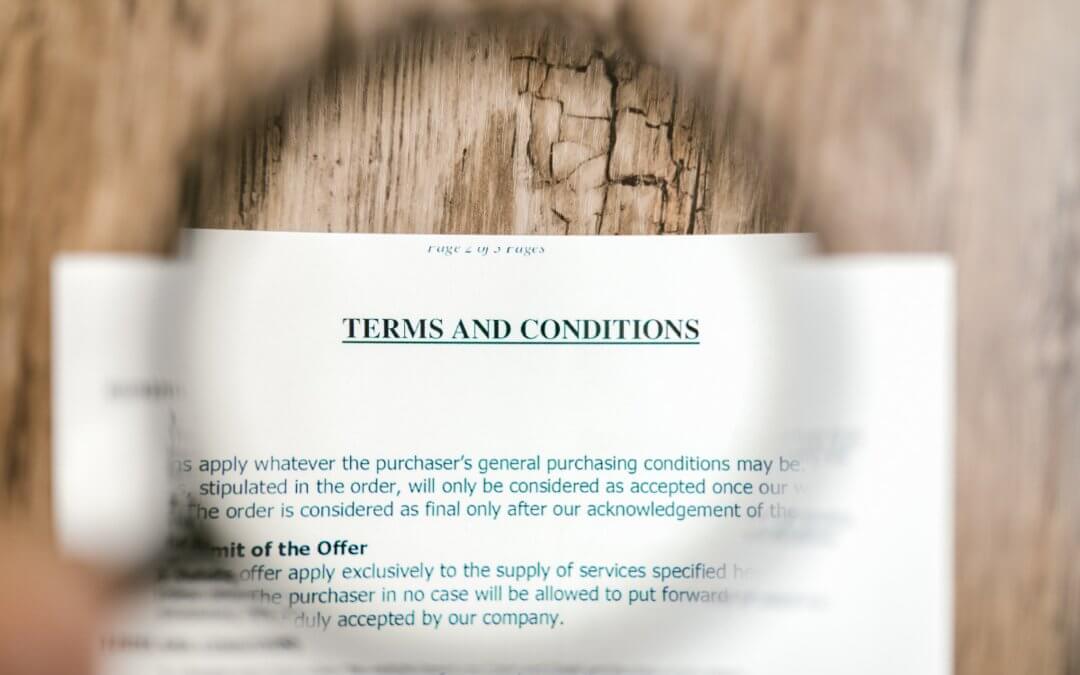Custom terms and conditions often go overlooked and are typically seen as an afterthought. Though some businesses have no terms whatsoever, it is a popular option for many to seek out basic and sometimes free-of-charge templated terms and conditions simply because it is considered easier. However, the potential repercussions that a business may face due to using templates will not be easy to fix at all.
Why You Mustn’t Use Terms and Conditions Templates
The first thing to consider is that many templates will contain irrelevant information that you may not have picked up on. Many reference another country’s law and jurisdiction rather than your own, which can be massively confusing to clients and will make it much harder to protect yourself in any disputes that may arise.
For one, consumer law varies globally, yet will need to be mentioned within any consumer terms and conditions. If a template references US consumer law yet is used by a UK business, the terms are now providing false information.
Templates will also lack other crucial information due to their generic nature, such as terms on liability and indemnity, force majeure, confidentiality, and data protection, to name only a few. There is some legalese that should always be discussed, if only briefly, within your terms, but templates often skip over these entirely.
After all, it is practically impossible to know the true origin of a template. Therefore, you cannot know whether they were drafted by someone who genuinely knows what they’re talking about – the chances are that they had zero clue!
Even “taking inspiration” from other businesses’ terms and conditions is highly discouraged, because no two businesses are the same. Further to this, if you have no idea what a professional set of terms and conditions looks like, how can you know the terms you have used to draft your own- regardless of whether they have come from another business or are templated – are factual or reliable at all?
As time passes, templates will also become less and less relevant, as they are not drafted to fit any changes that may occur in the future, whether within your business or within law. Bespoke terms and conditions, however, can be drafted to work alongside these changes, being what we call “future-proof.” Even drastic changes to your business will only warrant small changes if your terms and conditions are drafted correctly.
Another thing to consider is that a template may not cover the specific way your business operates. How do you take payment? How are your services performed? What are the client’s obligations? How can either party terminate the contract? These are all questions that need to be addressed in sufficient detail.
The Advantages of Having Bespoke Terms and Conditions
Overall, custom terms and conditions are intended to provide your customers with the information they need to know before entering into a contract with you. Regardless of whether they thoroughly read them or not, you have made that information available and understandable, so no claim can be made that you withheld important information.
You may also find that having a professionally drafted document ready to distribute to customers saves an awful lot of time in the long run. By having everything in writing, you avoid having to answer any questions that may arise and can instead direct those customers to your terms, which should answer those questions sufficiently.
Get in touch with us today at 01604 217365 or info@bebconsultancy.co.uk in order to discuss drafting bespoke terms and conditions for your business.

